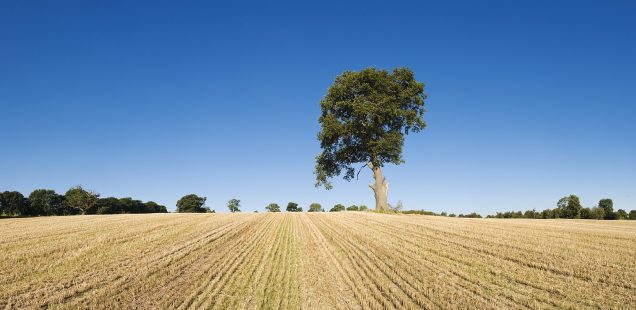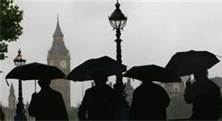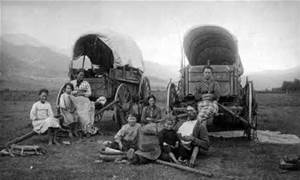
Hot, Hot, Hot
You knew it before you got there, knew it if you’re one of those people who checks weather.com before you go. I’d seen the temperatures predicted to be in the high 80’s and 90’s and I’d read the news reports about the European heat wave. I’d shaken my head and sucked my teeth and packed sleeveless shirts and shorts, but threw in a warm jacket and a raincoat anyway because, heh, it’s England, right? I don’t care what the forecasters say. It’s got to rain eventually.
If I weren’t one of those people who checks the weather before she goes, just someone who relies on past experience, I’d probably have tossed an extra sweater or two into my bag and a pair of warm socks as well, but I’d have known I wasn’t going to need them before I even landed, before I felt the jolt of the wheels make contact with the runway, before the purser on the British Airways flight announced “Welcome to Heathrow Terminal 5.” Because all you had to do was look out the window. Look out the window and gape. “This scepter’d isle,” this damp, rainy country I’d lived in for three years, this island nation famous in story and song for the greenness of its fields and pastures, for the multiplicity of greens spread over the canvas of its landscape, asparagus and fern, mint and emerald, jade and Kelly, was now the same color as the hills that surround my sister’s house out in Livermore, California. England was sear. England was drained of color. England was dull and brown.
The day after we got there, we went to a local dockyard with my daughter-in-law and one of our grandsons. We were jet-lagged and stunned by heat and my husband was shell-shocked from suddenly having to deal with the energy and questions of a five-year old. We’d been to the boatyard before, seven years ago, when my husband’s daughter got married on an historic sailing ship there. We went back to this ship that day and as I was following my grandson up the ladder to where his mother and father had tied the knot, I remembered how on the day of the wedding we were worried about, what else, the weather. The bride and groom would be under cover, but the wedding guests would not. Would it rain and ruin the feathery fascinators perched on half the ladies’ heads? Or pour buckets over the elaborate hats the other half were wearing? Would the sun come out for just a little while so we could take some decent pictures? It did, as a matter of fact, and we counted ourselves lucky to get a few shots of the bride and groom in a brief late afternoon shaft of light.
That day seemed like ancient history now as the breathless afternoon wore on. We’d have killed for a cloud, for a cool puff of breeze off the river, for a short sharp burst of rain. We wandered in and out of the great sheds of heavy equipment and amongst the life and rescue boats. We made the mistake of touring a submarine they had there, a tour that if the English had more experience of this kind of weather, they’d have known not to attempt with the temperature so high. The air down in the submarine was close and diesel-drenched. It made you feel light-headed and sick to your stomach. My grandson swatted his mother’s hand away when she tried to tell him something. I steadied myself with the knowledge that the tour was nearly over.
The hotel where we stayed had air-conditioning, an American owned Hilton whose lobby was Texas-style cold, but few people had air-conditioning in their homes. They mostly slept hot, with a fan if they were lucky. We went out to Southend-on-Sea to visit some friends who lived in a lovely old brick Victorian built to hold the heat and this the house most certainly did. We slept naked on the bed, the hot sheets under us like wet sand against our skin. I spent most of the night wide awake with the back of my neck drenched in sweat contemplating which position was marginally cooler: sleeping on my side, my back, or my stomach. I decided on my back, but didn’t fall asleep until early morning and got up groggy and bleary-eyed. That night on the coast of England was hotter than any night I ever spent in the Caribbean, hotter than the punishing August humidity of Connecticut. “Do you know what it’ll take to retrofit all these houses for air-conditioning?” my husband, ever the practical one, asked. “It will cost this country a fortune.”
The weather did break on the day we went up to the capital to ride the giant Ferris wheel, the London Eye. With a sigh of relief, I pulled out that jacket and raincoat I’d packed and wore them with pleasure as we dodged the raindrops walking along the cool and windy Thames. This respite from the heat lasted a few days. I saw Stonehenge under a comfortingly leaden sky and wandered through a Cotswold village and an ancient country churchyard with my jacket draped over my shoulders.
Then I checked the weather report for our next destination. For the entire time we were to be in the south of France, it would be between 95 and 100 degrees.
In August, you do expect the south of France to look like California in the dry season. You expect the fields to be sere and brown and the light-colored houses to blend seamlessly into the landscape, but surprisingly, as we drove south from Toulouse, the countryside seemed greener to us, greener than England! It was because of their winter, someone told me later, a winter in which it had rained practically every day, an aberration in this part of the country. Summer heat wasn’t an aberration, but not temperatures like this. Further south of us, in Portugal and Spain, heat warnings had been posted. As we drove to the town our friends lived in, there were suggestions on the message boards over the highways for ways to keep cool.
I know what you’re thinking. You’re in the south of France. Just go to the beach. But that’s not the south of France we were in, not the fashionable coast of beaches and hotels and the azure blue of the Mediterranean shimmering in the background. We were in the other south of France, the real one if you’ll pardon my saying so. We were in the south of France that stretches inland from Toulouse to the Pyrenees, the France full of dusty villages and markets and mostly French people, the France of back lanes and neighbors who spend their days tending chickens and vegetables, the France that starts to buckle and heave and then thrusts the peaks of the Pyrenees up into the sky.
There was no air conditioning in this friend’s house either though our hosts had kindly put a fan in our room. Yet despite the higher temperatures, we found it more comfortable than England. The houses in the south of France are built to take a bit of heat, built to stay cool through the baking days of summer, but at some point this summer’s extended heat wave overwhelmed even French architectural defenses and there we were again, sleeping naked on hot sheets, feeling the back of our neck glued to a damp pillow, and spending most of the night awake, contemplating the relative improvement in comfort you could make by any small change in your body position. In addition to the physical, we also felt a certain moral discomfort, for the fact was we had the coolest room in the house. One of the other house guests, who’d preceded us to France had been supplanted by our arrival and since he was only one moved from the room we were sleeping in up into the loft above where, though he also had a fan, I could imagine the utter airlessness he was trying to sleep in. He assured us it wasn’t that bad, that his fan made it bearable, but I suspect he was just a very polite liar. I never went up to see how much of a liar he was, to add several degrees of guilt to the degrees of heat we were already suffering from.
The days passed, however, one slow, hot day after another, and we did get into a kind of routine. We woke up to the cooler mornings and drank coffee in bed. We sat on the patio in the shade of the neighbors’ houses until the sun came around and then we retreated back inside to the lowest level of this house built in Revolutionary times and sat with bare feet on the cool flagstones. We sat under the ancient wooden arcade that shaded the perimeter of the town square and ordered cold glasses of the local sparkling wine, Blanquette, or equally cold beers.
The evenings were still lovely, as they always are in the south. They’re long and languid and you eat and drink outside until late, talking, laughing, remembering why you came here in the first place, to see good friends and to feel life slow from the frantic pace of the cities and suburbs you fled in North America to an older, slower, wiser way, to a pace you feel nostalgic for even before you’ve left to go home.
Though on the day we flew, I wasn’t unhappy to leave. It was hot again and we’d spent another restless night obsessing on body temperature and sleeping positions. Now it was the soupy humidity of Connecticut in August I was nostalgic for, or not the humidity, but the house, our house, that sat poaching in it, the house you only had to flip a switch to make cool and dry.
Two of the other house guests were escaping that day as well, not back to Dallas and Seattle, but up into the air. One of our hosts was driving them to Foix, that loveliest of towns whose castle, the old stronghold of the rebellious Cathar counts, rises at the fork of the Arget and Ariège rivers, mountains all around. They weren’t going to the castle. They were going up into the hills to run and jump and float for half an hour down to the valley floor below. We wished them well. We’d be flying north on a regular plane, back up to London, where the temperatures had mitigated, and then home to New York and Connecticut where things were just as we’d left them two weeks before, thundery, rainy, rainier than we could remember it ever being in August.
“We have your rain,” we’d joked to the English. “I never thought Connecticut would be cooler than Europe in the summer,” we added. And we never did, but the world and the weather are out of joint these days and the fires and floods and heat waves that were predicted, and their predictors mocked, are now upon us. We’ve entered the age of geographical and climactic relativism. Living here, I have to deal with this, but I don’t have to deal with that.
Maybe. Since none of us really knows what they are going to have to deal with, only that the old weather patterns are vanishing and the seasons are shifting. What will next summer be like where you live? Will it be hotter, rainier, or drier than you can ever remember it being before? We are no longer on the verge of great climactic changes. We are already engulfed by them. It terrifies me to think about it. It should terrify us all.





Yep! It’s very hard to believe that there still are those who deny that climate change is a scientific reality.